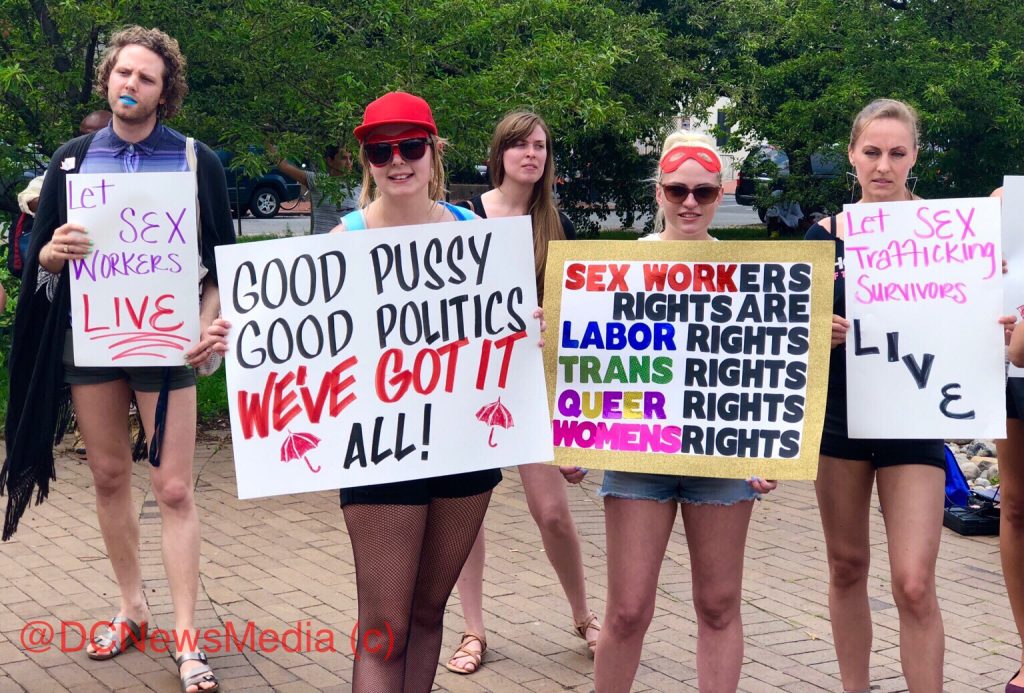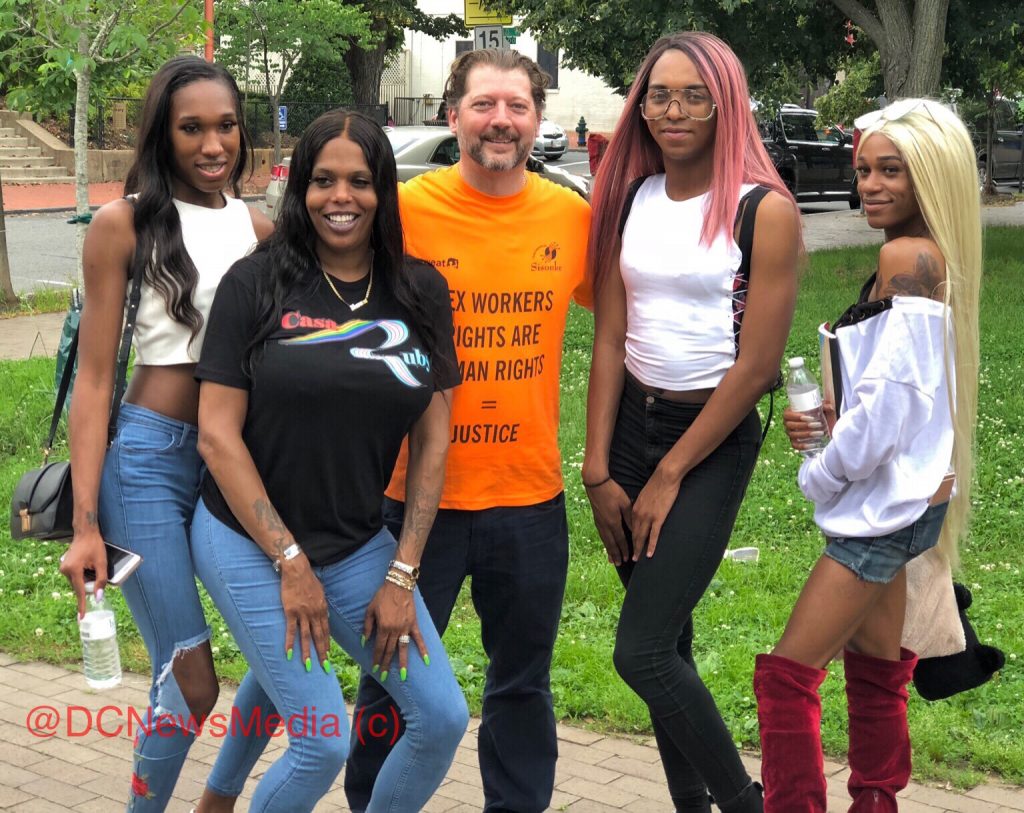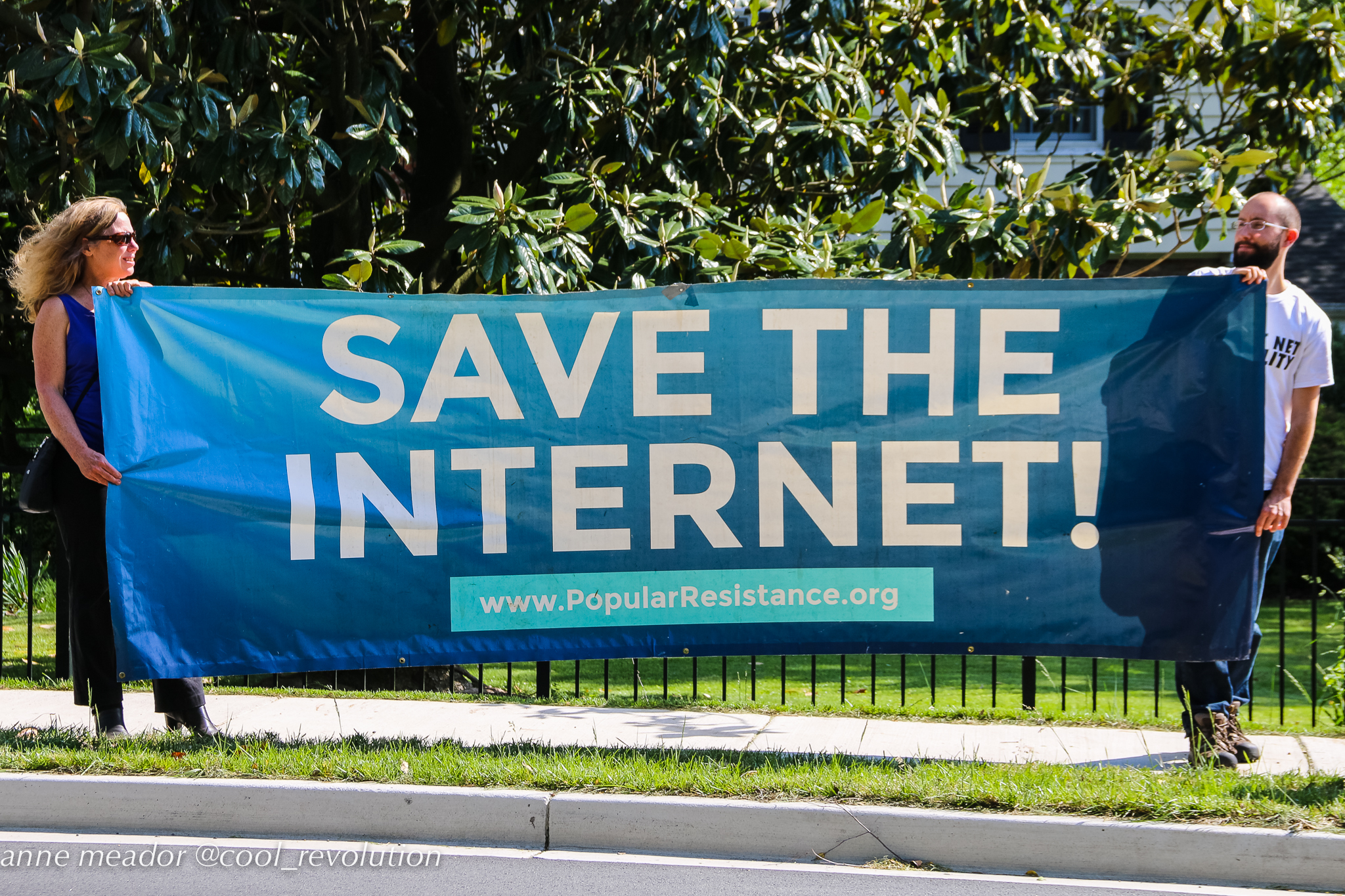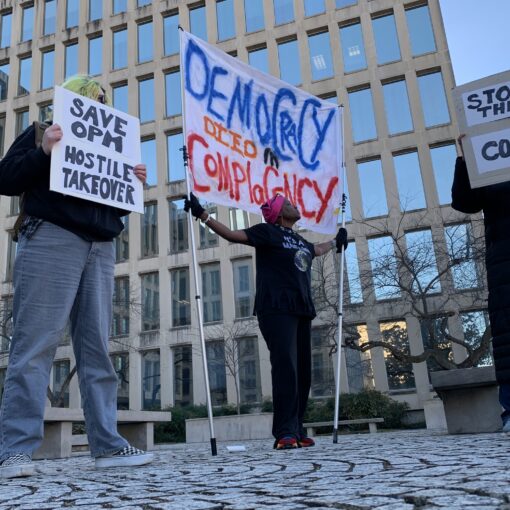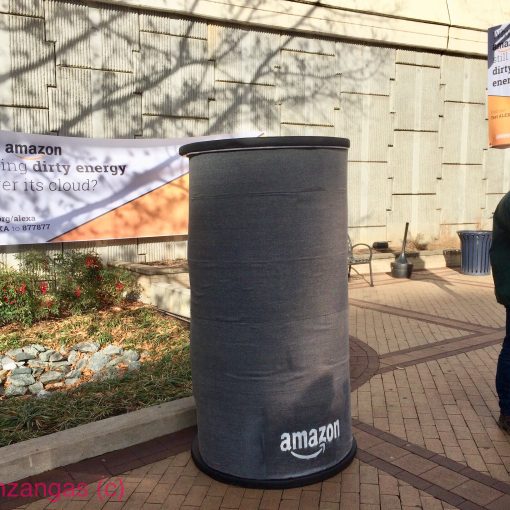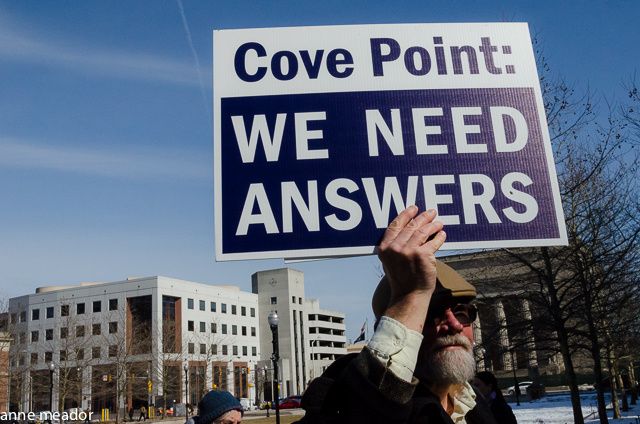Washington, DC–Sex workers rallied for equal rights on Saturday at Eastern Market, an upscale neighborhood near the U.S. Capitol. They demanded DC Council officially recognize them with workers’ protections and pass a bill to decriminalize sex work.
About 75 attended the rally, including allies and supporters. Speakers related their experiences and explained how equality and legal recognition would help protect them. The rallies came amidst an uptick of violent attacks against sex workers in the nation’s capital and across the country.
Shareese Mone, an advocate with End Violence Against Sex Workers, December 17, said that sex workers included a broad range of folx who were human and deserved respect like everyone else. “Today we’re celebrating not only the lives of the movement but the lives that were taken through sex work,” they said.
Mone also spoke about the economic justice of recognizing sex workers and giving them labor rights. “Sex work is a job. It is a hard job that not everybody wants to take, but some of us have to survive off it,” they said.

Mone also pointed out that trans sex workers were also a part of the community and was the smallest minority but also deserved to live lives like everyone else. “We have dreams and goals and all we are asking for is to be respected,” they said.
Advocates held a moment of silence to remember sex workers who had been slain while earning a living. They also danced to celebrate their growing movement and new legislative initiatives to legitimize sex workers in the labor force.
The advocates were joined by DC Council member David Grosso, who supports their efforts at gaining workers status in the District. “I’m out to show my support for decriminalization of sex work,” he said.
Grosso introduced a bill promoting sex workers rights last year in the DC Council. “I’m seeing some movement from my colleagues and the city,” he said.
Sex worker advocates are also urging an end to SESTA and FOSTA, bills passed by Congress in March targeting online sex worker communities. These communities were formed to help protect workers and are essential for their online well-being in the digital age, according to Siouxsie Q. James, Director of Policy and Industry Relations, Free Speech Coalition.
A similar rally for sex workers’ rights was held outside the legendary Stonewall nightclub in New York City and drew hundreds. International Whores Day, also know as Sex Worker’s Rights Day is celebrated at the beginning of June, which is also the start of LGBTQ Pride month.


